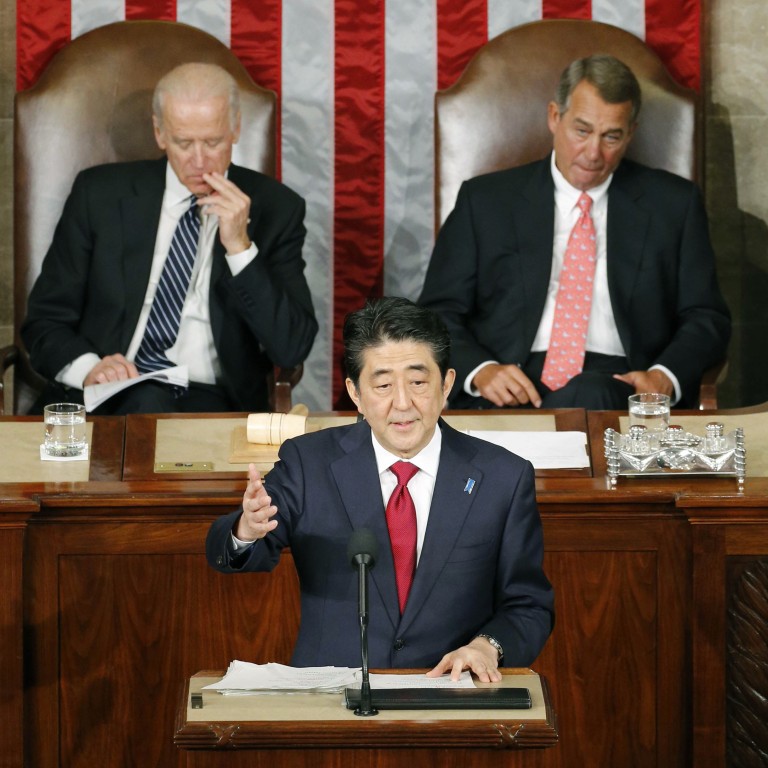
Not too late for Abe to apologise for Japan's wartime atrocities
I agree with your editorial ("Japan's missed opportunity", May 2) regarding the speech to the US Congress by Japanese Prime Minister Shinzo Abe.
Mr Abe should express his heartfelt apology over the atrocities committed by Japan in Asia before and during the second world war. This will help to dismantle a major obstacle to the country having better relations with China, Korea and other neighbours.
In his historic speech to the US Congress, Abe did express deep remorse over Asians' sufferings at the hands of Japanese militarists. However, he did not apologise for what was done, nor did he repeat the words of remorse of his predecessors, such as Tomiichi Murayama in 1995, simply saying that he upheld their views.
Despite missing this golden opportunity to win recognition from neighbouring states, it is not too late for the Japanese premier to set things right.
He can sincerely recognise the country's militaristic aggression in Asia, including the issue of the comfort women. This is not an issue that can be neglected or whitewashed over.
During her visit to Japan in March, German Chancellor Angela Merkel advised Abe to squarely face Japan's wartime past, referring to the progress made by post-war Germany and how it was accepted by the rest of Europe.
In the decades since the end of the war, German leaders have apologised for the atrocities of the Nazis and Germany has won the respect of European nations.
One remarkable instance of this honesty was what was known as the "Warsaw Genuflection" of then-chancellor Willy Brandt in Poland in 1970, at the memorial to victims of the Warsaw Ghetto Uprising.
Along with the peaceful and constructive contributions it has made, Germany has become an influential and prosperous part of Europe. I believe that post-war Germany should serve as a lesson that Abe and other Japanese right-wing politicians can learn from.
It is rumoured that Abe's speech in August which will mark the 70th anniversary of the end of the second world war will be similar to the one he gave to the US Congress, and may not include any apology, on behalf of Japan, despite pressure from China and Korea.
That speech offers Mr Abe a monumental opportunity. For the sake of maintaining regional stability, I hope he will wholeheartedly express his heartfelt remorse over Japan's dark history and make a formal apology.

